Martin McGuinness' roots in Derry's Bogside
- Published
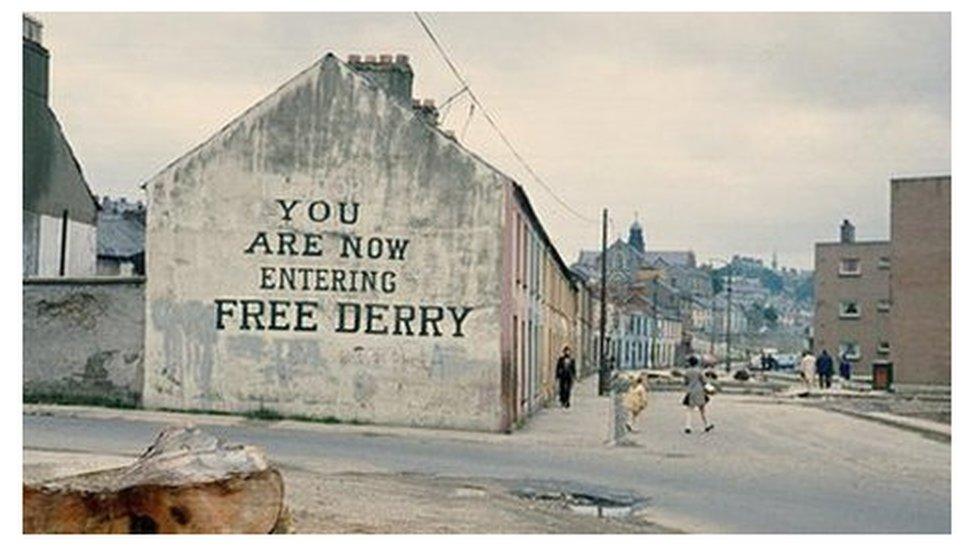
Martin McGuinness was born into the tight-knit community of the Bogside
"Bogside Republicans never retire," a defiant but tearful Martin McGuinness told his supporters.
It was the night he called time on his political career.
He was surrounded by family and friends outside his home in the area of Londonderry where he had spent most of his life - three streets away from where he was born.
He never travelled far from his roots but his political journey took him far beyond the comfort of the Bogside.
From directing IRA gunmen in Derry, to wearing tails in Windsor Castle at a banquet for the Queen.
From standing in Derry on Bloody Sunday when soldiers shot dead 13 people, to bowing his head at the Somme war graves.
Along the way he struck up the most unlikely friendship with the man who once branded him a "bloodthirsty monster" - Ian Paisley.
Away from the glare of the press he also struck up friendships with relatives who lost loved ones at the hands of the IRA.
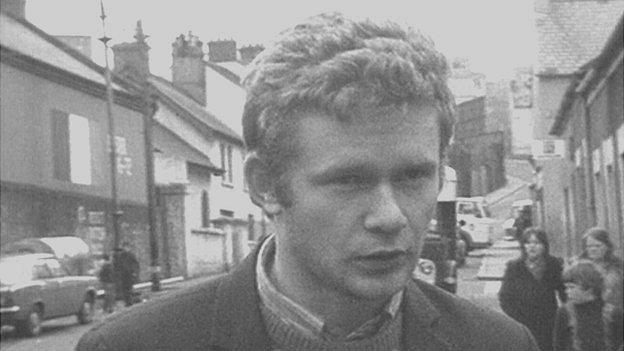
A young Martin McGuinness pictured in Derry
But no matter how far he reached out, for some he will always be an IRA commander who brought his dark secrets to the grave
For many unionists Martin McGuinness's fingerprints are all over the Troubles - a man who did not become an IRA leader without getting his hands dirty.
For republicans, his fingerprints are all over the peace process and Sinn Féin's steady rise in the polls, which brought them to within 1,000 votes of being the largest party at Stormont.
Toughest negotiation
But Sinn Féin's one-time chief negotiator always found his toughest negotiation was with his own people.
And especially in his home city where he faced threats from dissident republicans and his family were verbally abused on the street because of the decisions he made.
He did not have to travel far from his front door to see it.
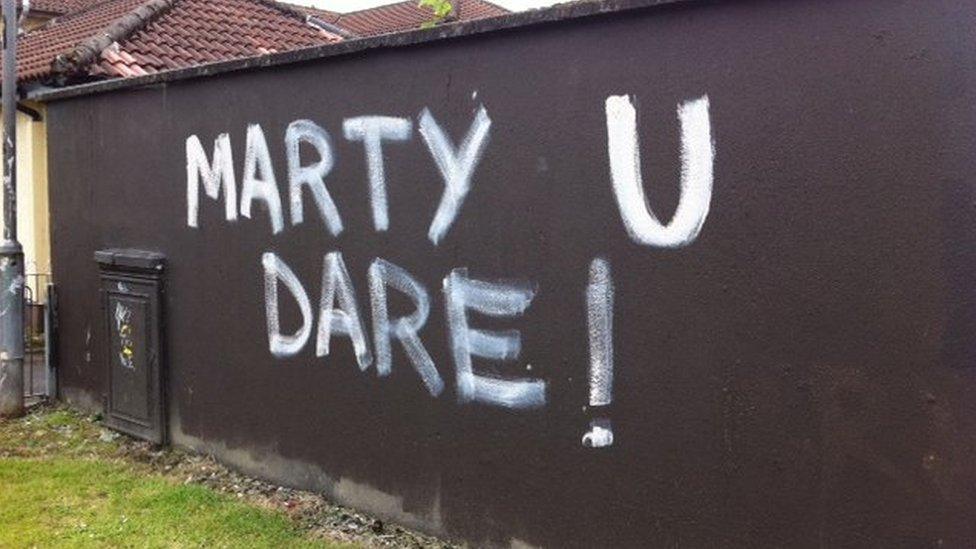
Graffiti appeared in the Bogside when Martin McGuinness agreed to meet the Queen
On a wall at the bottom of his street, dissident republicans regularly daub graffiti attacking their former comrades who now sit at Stormont.
Martin McGuinness was not able to bring those republicans with him on his journey, instead he labelled them "traitors to the island of Ireland".
But he was able to disarm his political foes and fiercest critics.
He achieved that with a personal charm which struck a chord with those he met - not least with Ian Paisley, who declared that Martin McGuinness should be thanked for saving lives and making the lives of people in Northern Ireland better.
Big statement
It was a big statement that caught many by surprise, but not those who had fallen victim to McGuinness' charm.
He was communicator who knew how to connect.
His Twitter account steered clear of controversy and was littered with commiserations and congratulations.
According to his staff, he often took detours on the way home from Belfast after spotting a death notice in the Irish News.
Political radar
Martin McGuinness knew the value of building personal relationships beneath the political radar and that allowed him to move well beyond the republican comfort zone.
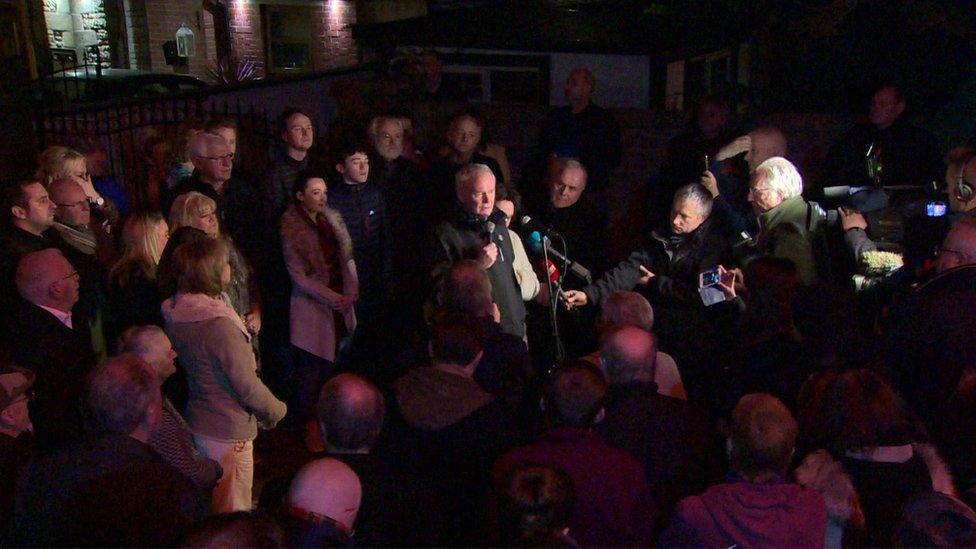
Martin McGuinness addressed crowds in the Bogside following the announcment he was standing down from politics
But it was fitting that he returned to the comfort of the Bogside, for what was his last public appearance, standing outside the home where he returned every night, and from where his final journey will begin later this week.
- Published21 March 2017
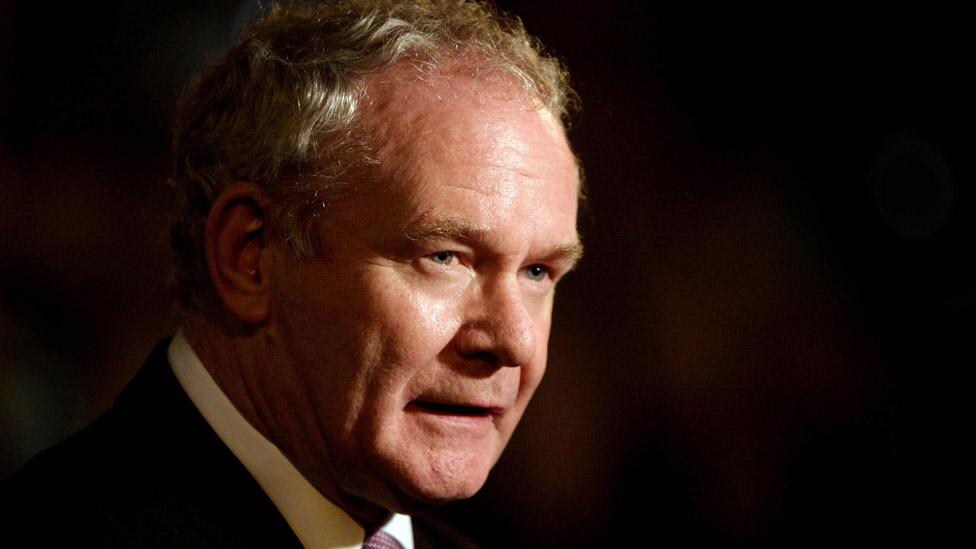
- Published21 March 2017
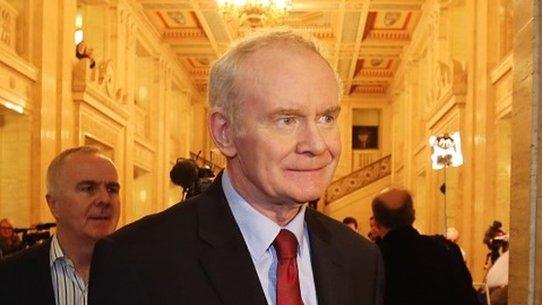
- Published21 March 2017
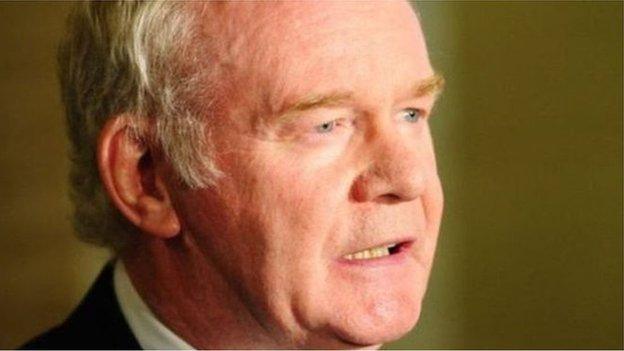
- Published21 March 2017
